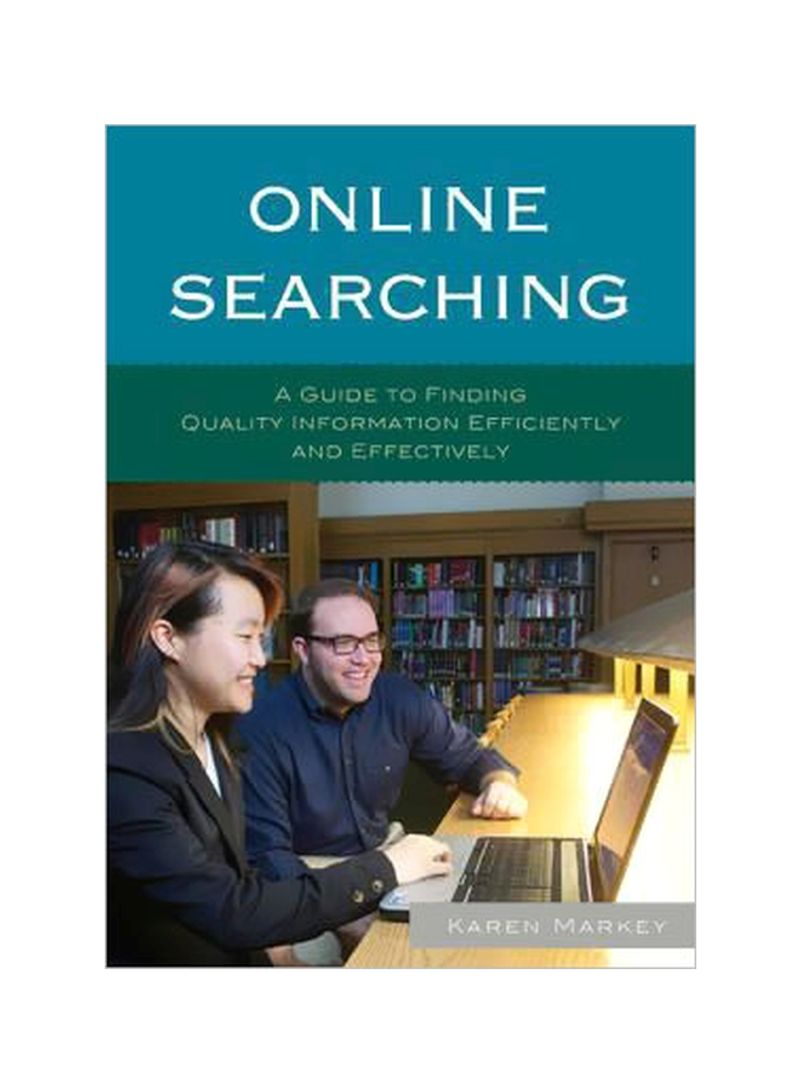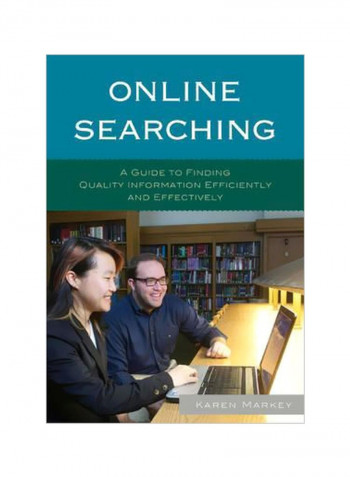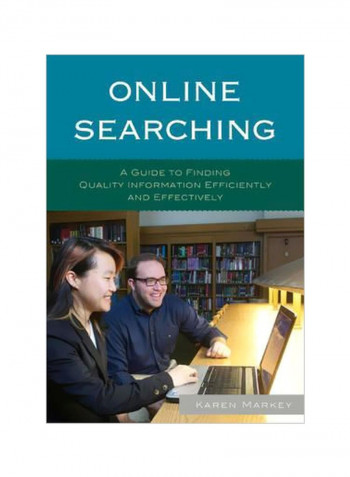Online Searching : A Guide To Finding Quality Information Efficiently And Effectively Paperback
Recommend
Sort by
Rating
Date
Specifications
Author 1
Karen Markey
Book Description
Online Searching puts the aspiring librarian on the fast track to becoming an expert searcher who unites library users with trusted sources of information to answer their questions. To accomplish this, it ushers you through online searching as a seven-step process: (1) determining what the user really wants in the reference interview, (2) identifying sources that are likely to produce relevant information for the user's query, (3) dividing the query into big ideas and combining them logically, (4) hypothesizing whether a known item or a subject will satisfy the query, (5) representing the query as input to the search system, (6) conducting the search and responding strategically, and (7) displaying retrievals, assessing them, and responding tactically. For key concepts, Online Searching enlists multimedia, representing visually what is difficult to convey via words alone. When you analyze Online Searching's real search topics, search online, and compare your results with its suggested answers, you'll experience the seven-step online searching process first-hand. Included are specific recommendations about what you should teach end users about online searching and a method for quickly and efficiently familiarizing yourself with a new database and search system. Including short video demonstrations, Online Searching is your go-to guidebook for ramping yourself up from novice to expert searcher.
ISBN-10
1442238852
Language
English
Publisher
Rowman & Littlefield
Publication Date
1 August 2015
Number of Pages
324
About the Author
Karen Markey is a professor in the School of Information at the University of Michigan. Her experience with online searching began with the earliest commercial systems, DIALOG, Orbit, and BRS, the first end-user systems, CD-ROMs and online catalogs, and includes today's open web search engines and proprietary systems for accessing databases of bibliographic records, abstracting & indexing entries, full texts, numeric data, and multimedia. Since joining the faculty at Michigan in 1987, she has taught online searching to thousands of students in her school's library and information science (LIS) program. Her research has been supported by the Council on Library Resources, Delmas Foundation (DF), Department of Education (DoED), Institute of Museum and Library Services (IMLS), National Science Foundation (NSF), and OCLC. She is the author of five books, more than a dozen major research reports, and over one hundred journal articles and conference proceedings papers.
Editorial Review
In her comprehensive primer to online searching, Markey provides readers with a detailed, step-by-step tour of how to search for information online. Although general Internet tools are discussed, the author emphasizes library-based resources, such as online catalogs, propriety databases, and licensed products. Markey does include chapters about the reference interview and interacting with patrons, but this is not a guide to providing reference services. Information literacy is discussed in general terms, yet the author frames reference interactions as situations in which librarians find information to answer patrons' questions, not necessarily to help them develop searching skills. Each chapter includes a number of questions designed for novice searchers to develop their own skills, as well as suggestions for further reading. Verdict: Library and information science (LIS) faculty who teach the fundamentals of searching online will find this text to be useful. However, they will want to discuss the various goals of reference transactions in different library settings. Librarians who provide instruction to non-LIS students might also find portions of this work helpful in terms of finding innovative ways to teach effective search strategies. * Library Journal * Our traditional models of accessing information - library catalogs and abstracting and indexing services - were developed to ease access to scholarly resources in the print era. In the digital era, new ways of getting to the resources are necessary. Karen Markey, who has analyzed access to database content as it has evolved over the past four decades, has written a textbook, Online Searching: A Guide to Finding Quality Information Efficiently and Effectively. Throughout, she emphasizes that librarians' unique contribution is their ability to access quality information from trusted sources. Typically, this material is not readily available on the open web but through licensed databases. Markey describes the types of databases and stresses the presearch preparations of the reference interview, the considerations of the facets of the topic to be searched, and the evaluation of the database to be used. * American Libraries * Anyone can Google and find some information or, more likely, too much information. Online Searching is the new go-to manual for librarians who are charged with finding the best information from the myriad online sources available today. This book focuses on mastering today's information-rich environment and is a must for everyone who teaches or conducts online searches. -- Carol Tenopir, Chancellor's Professor and Board of Visitors Professor, School of Information Sciences, College of Communication and Information, University of Tennessee Online Searching: A Guide to Finding Quality Information Efficiently and Effectively fulfills the promise of its subtitle, equipping readers with the knowledge and skills needed to be expert intermediary searchers who can find quality information efficiently and effectively using both licensed databases and the open Web. The text is written in a clear, accessible style with numerous figures, tables, textboxes, questions (and answers), suggested readings, and a glossary supporting its use as a textbook to accompany a course on online searching or for self-study. Topics are well-chosen, covering in-depth discussion of each step in the search process, search strategies, and interacting with library users, as well as areas of emerging importance such as using databases to assess research impact. -- Linda C. Smith, Professor, Graduate School of Library and Information Science, University of Illinois at Urbana-Champaign These days, when there are billions of information searchers around the world, current and future librarians and other information professionals must be effective and efficient information finders. This book helps LIS practitioners, educators and students in achieving this. -- Peter Jacso, Professor, Library and Information Science Program, Department of Information and Computer Sciences, University of Hawaii Karen Markey's guide to effective and efficient searching addresses the information retrieval process both for novice and expert searchers within the context of information organization, controlled vocabulary, query formulation, searching strategies, and searching systems and interfaces. She provides tips for the various stages of the research itself, from pre-search preparation to database selection, from free text versus built-in descriptor usage. The book will help LIS students to develop searching competencies, will assist librarians enhance their information retrieval skills, will enable subject area specialists and domain experts become independent effective and efficient searchers. A must-have for anyone interested in polishing his/her online searching that will result in finding in-depth information for scholarly endeavors. -- Hermina G.B. Anghelescu, Associate Professor, School of Library & Information Science, Wayne State University



